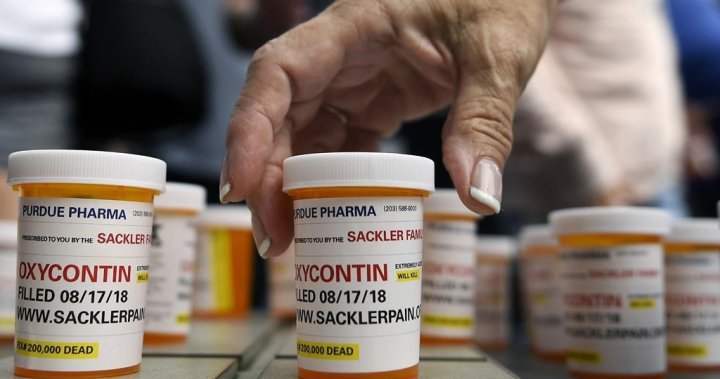In a landmark development that may reshape Canada’s approach to the devastating opioid crisis, British Columbia’s class-action lawsuit against pharmaceutical giants has secured its first major victory. Purdue Pharma Canada has agreed to a settlement estimated at $150 million, creating a potential domino effect for ongoing litigation against dozens of opioid manufacturers and distributors across the country.
“This settlement represents acknowledgment of the pharmaceutical industry’s role in fueling a crisis that has torn apart families and communities,” said B.C. Attorney General Niki Sharma at yesterday’s press conference. “While no amount of money can bring back those we’ve lost, these funds will be directed toward treatment and prevention efforts that save lives.”
The settlement comes after years of mounting evidence suggesting that pharmaceutical companies aggressively marketed highly addictive painkillers while downplaying risks. According to Health Canada data, more than 38,000 Canadians have died from opioid-related causes since 2016, with the crisis accelerating during the COVID-19 pandemic.
Unlike the United States, where settlements with Purdue Pharma, Johnson & Johnson, and major distributors have reached approximately $50 billion, Canada’s legal pursuit has progressed more slowly. However, legal experts suggest this initial settlement creates crucial precedent.
“What we’re seeing is the beginning of accountability in the Canadian context,” explains Dr. Evan Wood, addiction medicine specialist at the University of British Columbia. “The U.S. litigation demonstrated that these companies engaged in marketing practices that prioritized profits over public health, and similar evidence exists in Canada.”
The settlement notably includes Purdue’s Canadian operations but remains separate from its American parent company’s bankruptcy proceedings. McKinsey & Company, which advised pharmaceutical companies on opioid marketing strategies, has also faced legal action in Canada following its $573 million settlement in the United States.
“The pharmaceutical industry deployed sophisticated marketing campaigns targeting doctors with misleading information about addiction risks,” said Jane Philpott, former federal health minister and current advisor on health policy. “These settlements represent an opportunity to redirect resources toward evidence-based solutions.”
Indigenous communities, disproportionately affected by the crisis, have voiced both support for the settlements and concern about whether funds will adequately reach their communities. The First Nations Health Authority reports overdose rates among Indigenous peoples in B.C. are nearly five times higher than non-Indigenous populations.
“We need guarantees that settlement money will support culturally appropriate treatment programs in our communities,” said Grand Chief Stewart Phillip of the Union of B.C. Indian Chiefs. “The devastation has been immeasurable.”
The settlement’s impact extends beyond immediate financial compensation. Legal precedent established through this case will likely influence ongoing litigation against other pharmaceutical companies, distributors, and pharmacy chains implicated in the opioid crisis.
Financial analysts tracking the pharmaceutical sector note that potential liability has already affected market valuations, with investors increasingly factoring litigation risk into investment decisions.
While the B.C. settlement represents progress, advocates emphasize that legal accountability is only one aspect of addressing the crisis. Comprehensive solutions require expanded harm reduction services, better access to evidence-based treatment, and addressing root causes of addiction.
As Canada grapples with this ongoing public health emergency, the question remains: will these settlements provide sufficient resources to meaningfully address a crisis that continues to claim thousands of lives annually, or are they merely the beginning of a much longer journey toward healing and accountability?























